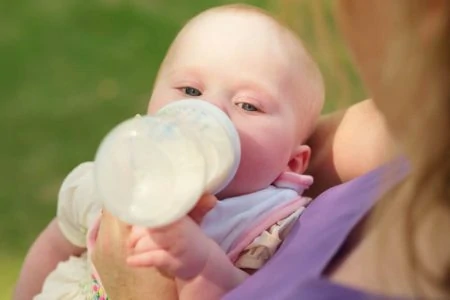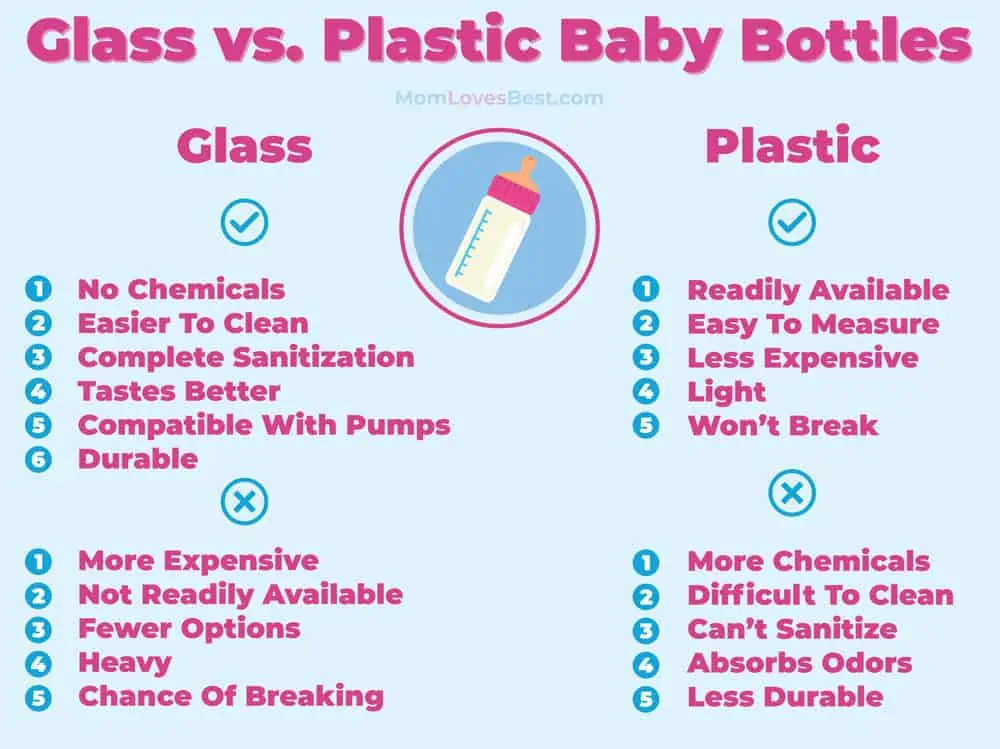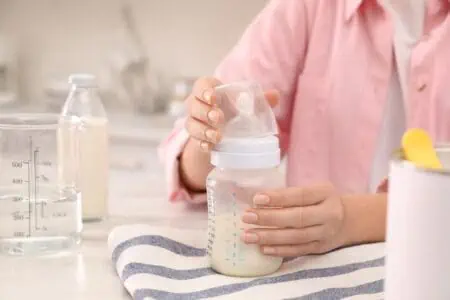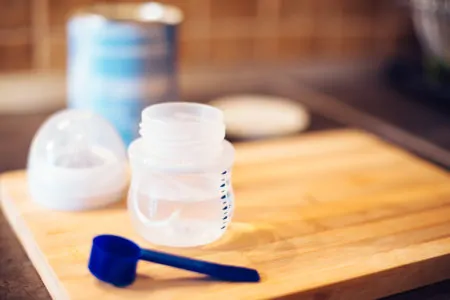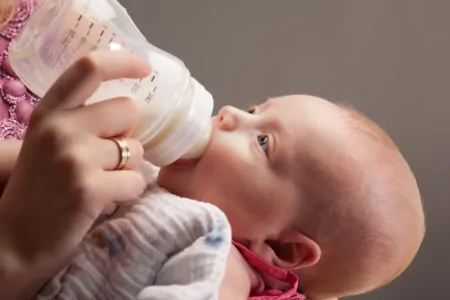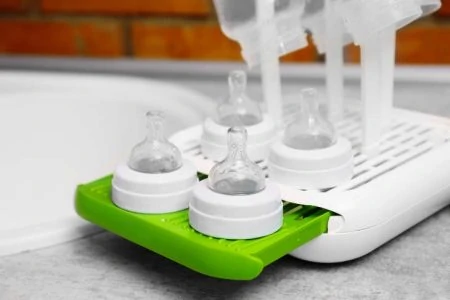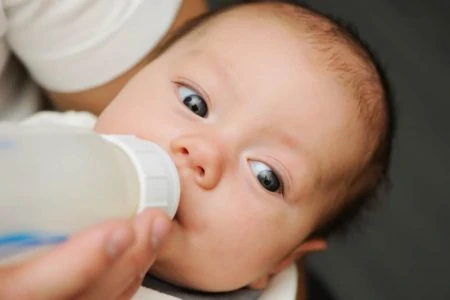Walking down the baby aisle is overwhelming. Between the different shapes, nipple flows, and venting systems, picking a simple bottle feels like rocket science. But the biggest debate usually comes down to material: is it better to go with classic glass or modern plastic?
In this guide, we dive deep into the pros and cons of glass baby bottles versus plastic options. We will also cover two alternatives gaining serious traction, silicone and stainless steel, so you can make the safest, most practical choice for your family.
Key Takeaways
- Glass bottles: They are chemical-free, easier to clean, and durable, but they are heavy and pricier.
- Plastic bottles: These are lightweight, cheap, and unbreakable, but they can scratch easily and may shed microplastics when heated.
- Alternatives: Silicone and stainless steel offer non-toxic benefits but come with higher price tags and unique quirks.
- Verdict: There is no single “best” bottle; many parents use glass for home feeding and plastic or silicone for daycare and travel.
Glass Baby Bottles
Glass baby bottles are making a massive comeback as parents look for ways to reduce plastic exposure. While they used to be heavy and fragile, modern manufacturing has made them much more user-friendly. If purity is your top priority, this is likely your starting point.
Pros of Glass Baby Bottles
Here is why many parents are making the switch back to glass.
- No chemical leaching: Glass bottles are chemically inert. You never have to worry about BPA, BPS, or phthalates leaching into your baby’s milk, even at high temperatures.
- Easier to clean: Glass doesn’t absorb colors or smells. You can forget about that lingering “spoiled milk” odor that often plagues old plastic bottles. Plus, they are dishwasher safe and don’t get cloudy over time.
- Sanitization friendly: You can boil them or use a steam sterilizer without fear. Most modern glass bottles are made of borosilicate glass, which is resistant to thermal shock (meaning they won’t crack easily when moving from cold to hot).
- Better taste: Just like your soda tastes better in a glass bottle, breast milk and formula maintain their true flavor in glass without picking up a plastic aftertaste.
- Pump compatibility: You might not need an adapter. Many glass options fit directly onto standard breast pump flanges (like those from Medela or Spectra), allowing you to pump, store, and feed from the same vessel.
- Durability: While they can break, they don’t wear out. A single set of glass bottles can easily last through multiple children, making them eco-friendly and cost-effective in the long run.
Cons of Glass Baby Bottles
Despite the benefits, glass isn’t perfect for every lifestyle.
- Heavier weight: Glass is significantly heavier than plastic. This can make it harder for an older baby to hold the bottle themselves and adds noticeable bulk to your diaper bag.
- Breakage risk: While tempered glass is tough, it isn’t invincible. If dropped on concrete or tile, it can shatter. However, most brands now sell silicone sleeves to improve grip and cushion falls.
- Price: Expect to pay more upfront. Manufacturing glass is energy-intensive, and the shipping weight adds to the cost.
- Limited availability: You might not find a replacement glass bottle at a gas station or small drug store during an emergency.
Did You Know?
Most modern glass bottles are made with tempered or borosilicate glass. If they do break, they are designed to crumble into rounded pebbles rather than dangerous, sharp shards to keep your little one safe.
Plastic Baby Bottles
Plastic bottles remain the market leader for a reason: they are convenient. For parents on the go or those sending bottles to daycare (where glass might be banned), plastic is often the default choice.
Pros of Plastic Baby Bottles
Here are the advantages that keep plastic bottles popular.
- Lightweight: These are featherlight, making them the perfect training tool for babies learning to hold their own bottle.
- Unbreakable: You can drop them, throw them, or step on them, and they will bounce right back. This peace of mind is huge for many parents.
- Budget-friendly: Plastic is cheap to produce, meaning you can buy a large stash for the price of just a few glass bottles.
- Easy to measure: The markings on plastic bottles are often molded into the material or printed clearly, making it easy to mix formula accurately.
- Widely available: You can find plastic bottles in almost any grocery store, pharmacy, or big-box retailer.
Cons of Plastic Baby Bottles
Convenience comes with some potential health and hygiene trade-offs.
- Chemical concerns: While legally required to be BPA-free, many plastics use substitutes like BPS or BPF, which some studies suggest may have similar hormonal effects.
- Microplastics: Recent research indicates that heating plastic bottles (or shaking hot water inside them) can release millions of microplastics into the liquid.
- Hygiene issues: Plastic is soft and porous. It scratches easily, and those microscopic scratches can harbor bacteria and absorb odors that are impossible to wash out.
- Short lifespan: Plastic degrades. You will likely need to replace your stash every few months as they become discolored, scratched, or warped.
Alternative Options: Silicone and Stainless Steel
If neither glass nor plastic feels right, you aren’t out of luck. The market has expanded to include materials that aim to solve the heavy/breakable issues of glass and the chemical issues of plastic.
Silicone Baby Bottles
Silicone bottles (like Comotomo or Boon Nursh) are the trendy middle ground. They are soft, squishy, and made from food-grade silicone.
- Pros: Silicone is heat resistant, non-toxic, and lightweight. The soft texture mimics the breast, which many breastfed babies prefer. They are also unbreakable.
- Cons: They can be expensive and sometimes tip over easily due to rounded bases. Like plastic, silicone can sometimes absorb strong odors (like dish soap).
Stainless Steel Baby Bottles
Stainless steel is the tank of the bottle world. It is virtually indestructible and offers excellent thermal properties.
- Pros: Steel is non-toxic, anti-bacterial, and eco-friendly. Many steel bottles are insulated, keeping milk warm (or cold) for much longer than glass or plastic.
- Cons: You cannot see inside them. This makes measuring milk volume tricky; you often have to measure in a separate cup and pour it in. They are also pricey and heavy.
Hybrid Technology
Can’t decide? Look for “hybrid” bottles like the Chicco Duo. These feature a micro-thin layer of pure glass on the inside to protect the milk, bonded to a plastic outer shell for durability. It gives you the purity of glass with the lightness of plastic.
FAQs
Choosing What’s Right
There is no shortage of opinions on baby gear, but try not to let the noise overwhelm you.
The reality is that your baby is the boss. You might invest in a beautiful set of silicone bottles, only to find your little one refuses anything but a specific plastic brand. Because babies have strong preferences, we recommend buying just one single bottle of a few different types (glass, plastic, wide-neck, narrow-neck) to test the waters.
Once you find the winner, you can commit to a full set. Whether you choose the purity of glass, the convenience of plastic, or the durability of stainless steel, you are making the right choice as long as your baby is fed and happy.
